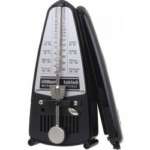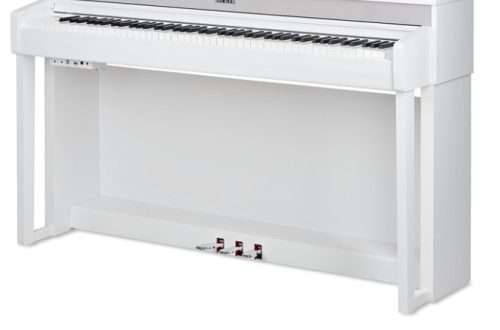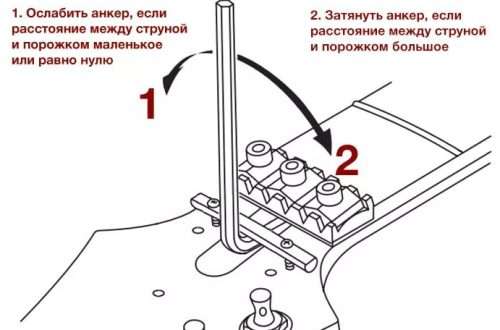How are songs recorded in the studio?
Sooner or later, many musical groups in their work come to a point when, for the further promotion and development of the group, it is necessary to record several songs, so to speak, make a demo recording.
Recently, with the development of modern technologies, making such a recording at home seems quite possible, but the quality of such recordings, naturally, leaves much to be desired.
Also, without certain knowledge and skills in high-quality sound recording and mixing, the result may not be what the musicians originally expected. And it’s not too serious to provide a “homemade” disc with poor recording quality to the radio or various festivals. Therefore, it is necessary to record a demo only in a professional studio.
Many musicians who rehearse for days on end in garages and basements have a fairly good level of playing, but they can’t even imagine how they record songs in the studio. Therefore, we smoothly move on to the first point – choosing a recording studio.
Choosing a studio
Naturally, you shouldn’t go to the first recording studio you come across and shell out money to rent the equipment provided. To begin with, you can ask your musician friends where and in what studios they record their work. Then, having decided on several options, it is advisable, especially if the recording will be carried out for the first time, to choose among recording studios of an inexpensive category.
Because while recording a demo in the studio, musicians very often begin to look at their music from a different angle. Someone will play the part differently, someone will change the ending, and somewhere the tempo of the composition will have to be changed. All this, of course, is a great and positive experience that we can build on in the future. Therefore, the ideal option is an inexpensive studio.
You also need to talk with the sound engineer, find out what equipment their studio provides, and listen to the materials that were recorded there. But you shouldn’t draw conclusions based only on the equipment provided, since there are inexpensive studios equipped only with the essentials. And the sound engineer has golden hands and the resulting material is no worse than in expensive studios with a huge amount of different equipment.
There is another opinion that recording should only be done in expensive recording studios with a lot of equipment, but this is a personal matter for everyone. The only thing is that for a beginning group recording for the first time, this option is certainly not advisable.
Recording a song
Before arriving at the recording studio, you need to consult with its representative to find out what you need to bring with you. Usually for guitarists this is their gadgets and guitars, drumsticks, and a set of iron. Although it happens that for recording it is better to use the provided studio hardware, but sticks are definitely needed.
And yet, the most important thing that is required of a drummer is the ability to play his entire part to a metronome, from beginning to end. If he has never played like this in his life, he needs to practice several weeks before recording, or better yet, months.
If you need to change the strings on a guitar, this should be done the day before recording, otherwise they will “float” when recording a song in the studio, that is, they will need constant adjustment.
So, let’s proceed directly to the recording itself. Drums with a metronome are usually recorded first. In the intervals between the recording of a separate instrument, operational mixing is carried out. Thanks to this, the bass guitar is recorded already under the drums. The next instrument in line is assigned to the rhythm guitar, respectively, for two parts – drums and bass guitar. Then the solo and all the remaining instruments are recorded.
After recording the parts of all instruments, the sound engineer does preliminary mixing. Then vocals are recorded onto the mixed material. This whole process takes quite a long time. Firstly, each instrument is separately tuned and tested before recording. Secondly, the musician will not produce the ideal part of his instrument in the first take; at least he will have to play it two or three times. And all this time, of course, is included in the hourly studio rent.
Of course, a lot depends on the experience of the musicians and on how often the band records in the studio. If this is the first time such an experience and more than one musician has no idea how songs are recorded in the studio, then recording one instrument will last approximately one hour, based on the fact that the first time the musicians will make mistakes more often and rewrite their parts.
If the playing of the musicians of the rhythm section is sufficiently coordinated and they do not make any mistakes when playing, you can, in order to save money, record the drum part, bass guitar and rhythm guitar at once. This recording sounds more lively and dense, which adds its own interest to the composition.
You can try an alternative option – recording live – if money is really tight. In this case, all musicians play their part simultaneously, and the sound engineer records each instrument on an independent track. The vocals are still recorded separately, after recording and finalizing all the instruments. The recording turns out to be of lower quality, although it all depends on the skill of the musicians and how well they each play their part.
Mixing
When all the material is recorded, it needs to be mixed, that is, to ideally match the sound of each instrument in relation to each other. This will be done by a professional sound engineer. And you will also have to pay for this process, but separately, the price will be the same for all songs. So the cost of a full studio recording will depend on the number of hours spent on recording all the material plus payment for mixing the songs.
In principle, these are all the main points that musicians will have to face when recording in the studio. The rest, more subtle, pitfalls, so to speak, are best learned by musicians from their own personal experience, since many moments are simply not possible to describe.
Each individual recording studio and each individual professional sound engineer may have their own exclusive recording methods that musicians will encounter directly during their work. But finally, all the answers to the question of how songs are recorded in the studio will be fully revealed only after direct participation in this difficult process.
I suggest watching a video at the end of the article about how guitars are recorded in the studio:



